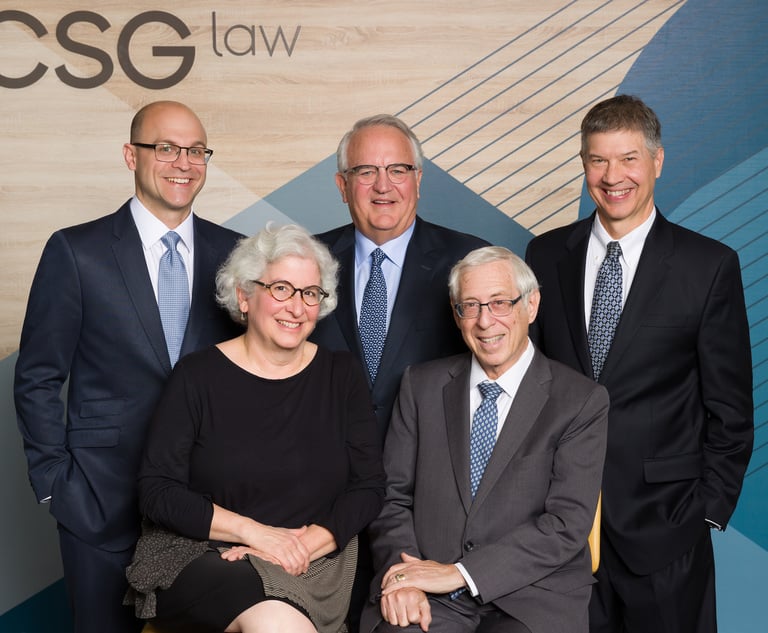Third Circuit Dismisses Pa. Residents' Objections to More Flights at Trenton-Mercer Airport
The Third Circuit has affirmed an FAA ruling allowing Allegiant Air to offer commercial flights at Trenton-Mercer Airport in Ewing, New Jersey.
January 11, 2018 at 04:35 PM
3 minute read
 Photo: Fotolia
Photo: Fotolia
The U.S. Court of Appeals for the Third Circuit has affirmed a Federal Aviation Administration ruling allowing Allegiant Air to offer commercial flights at Trenton-Mercer Airport in Ewing, New Jersey.
The appeals court rejected claims by a group representing persons living across the Delaware River in Bucks County, Pennsylvania, who claimed the FAA failed to adequately consider noise impact generated by Allegiant's operations.
Allegiant sought approval to conduct seven takeoffs and seven landings per day at Trenton-Mercer, which is owned by the Mercer County Board of Chosen Freeholders. The FAA granted the airline's application in November 2016, concluding that no significant impacts would result from Allegiant's operations. The decision was appealed to the Third Circuit by a group called Bucks Residents for Responsible Airport Management and three members of the group. BRRAM members, centered in the towns of Yardley and Lower Makefield, say that planes taking off and landing at the airport make approaches over their homes.
The Trenton-Mercer Airport was built by the U.S. Navy in 1924 and saw its first commercial flights in the 1950s.
The appellants said the scope of the environmental study should not have been confined to Allegiant's 14 weekly flights, but should have also considered additional flights that Allegiant might add in the future as well as flights by other airlines.
The appellants claimed that the FAA should have produced an environmental impact statement, a type of wide-ranging study, about the arrival of Allegiant because the expansion had the potential for significant impact on noise levels in noise-sensitive areas. The FAA maintained that it did not have to perform an environmental impact statement under a categorical exclusion for “operating specifications and amendments that do not significantly change the operating environment of the airport.”
The appeals court noted that the FAA considered a noise study by Allegiant as well as a broader study of noise impact that was conducted by the airport itself, before making its decision, Judges Julio Fuentes, Michael Chagares and Thomas Vanaskie ruled. The appellants did not challenge the validity of the airport's study, which showed that Allegiant's operations would not have a significant impact on noise in the area, and on that basis, the appeals court concluded that the FAA did not act in an arbitrary and capricious manner when it concluded that an environmental impact statement need not be conducted.
Allegiant began serving Trenton-Mercer Airport in November 2016, where it joins Frontier Airlines.
R. William Potter, of Potter and Dickson in Princeton, New Jersey, who represents BRRAM, said he was disappointed by the ruling and that he wants Congress to take up the FAA's “unwritten policy” that it has no legal duty to conduct a cumulative impact analysis in circumstances such as the present one.
An attorney for Allegiant, James Auslander of Beveridge & Diamond in Washington, said the ruling is notable because it “upholds the use of efficient procedures when actions do not pose significant environmental impact.”
Joan Pepin, a Department of Justice lawyer who represented the FAA, declined to comment.![]()
This content has been archived. It is available through our partners, LexisNexis® and Bloomberg Law.
To view this content, please continue to their sites.
Not a Lexis Subscriber?
Subscribe Now
Not a Bloomberg Law Subscriber?
Subscribe Now
NOT FOR REPRINT
© 2024 ALM Global, LLC, All Rights Reserved. Request academic re-use from www.copyright.com. All other uses, submit a request to [email protected]. For more information visit Asset & Logo Licensing.
You Might Like
View All
Hit by Mail Truck: Man Agrees to $1.85M Settlement for Spinal Injuries

Appellate Div. Follows Fed Reasoning on Recusal for Legislator-Turned-Judge
4 minute read
Chiesa Shahinian Bolsters Corporate Practice With 5 From Newark Boutique
5 minute read
On the Move and After Hours: Brach Eichler; Cooper Levenson; Marshall Dennehey; Archer; Sills Cummis
7 minute readTrending Stories
- 1Judge Denies Sean Combs Third Bail Bid, Citing Community Safety
- 2Republican FTC Commissioner: 'The Time for Rulemaking by the Biden-Harris FTC Is Over'
- 3NY Appellate Panel Cites Student's Disciplinary History While Sending Negligence Claim Against School District to Trial
- 4A Meta DIG and Its Nvidia Implications
- 5Deception or Coercion? California Supreme Court Grants Review in Jailhouse Confession Case
Who Got The Work
Michael G. Bongiorno, Andrew Scott Dulberg and Elizabeth E. Driscoll from Wilmer Cutler Pickering Hale and Dorr have stepped in to represent Symbotic Inc., an A.I.-enabled technology platform that focuses on increasing supply chain efficiency, and other defendants in a pending shareholder derivative lawsuit. The case, filed Oct. 2 in Massachusetts District Court by the Brown Law Firm on behalf of Stephen Austen, accuses certain officers and directors of misleading investors in regard to Symbotic's potential for margin growth by failing to disclose that the company was not equipped to timely deploy its systems or manage expenses through project delays. The case, assigned to U.S. District Judge Nathaniel M. Gorton, is 1:24-cv-12522, Austen v. Cohen et al.
Who Got The Work
Edmund Polubinski and Marie Killmond of Davis Polk & Wardwell have entered appearances for data platform software development company MongoDB and other defendants in a pending shareholder derivative lawsuit. The action, filed Oct. 7 in New York Southern District Court by the Brown Law Firm, accuses the company's directors and/or officers of falsely expressing confidence in the company’s restructuring of its sales incentive plan and downplaying the severity of decreases in its upfront commitments. The case is 1:24-cv-07594, Roy v. Ittycheria et al.
Who Got The Work
Amy O. Bruchs and Kurt F. Ellison of Michael Best & Friedrich have entered appearances for Epic Systems Corp. in a pending employment discrimination lawsuit. The suit was filed Sept. 7 in Wisconsin Western District Court by Levine Eisberner LLC and Siri & Glimstad on behalf of a project manager who claims that he was wrongfully terminated after applying for a religious exemption to the defendant's COVID-19 vaccine mandate. The case, assigned to U.S. Magistrate Judge Anita Marie Boor, is 3:24-cv-00630, Secker, Nathan v. Epic Systems Corporation.
Who Got The Work
David X. Sullivan, Thomas J. Finn and Gregory A. Hall from McCarter & English have entered appearances for Sunrun Installation Services in a pending civil rights lawsuit. The complaint was filed Sept. 4 in Connecticut District Court by attorney Robert M. Berke on behalf of former employee George Edward Steins, who was arrested and charged with employing an unregistered home improvement salesperson. The complaint alleges that had Sunrun informed the Connecticut Department of Consumer Protection that the plaintiff's employment had ended in 2017 and that he no longer held Sunrun's home improvement contractor license, he would not have been hit with charges, which were dismissed in May 2024. The case, assigned to U.S. District Judge Jeffrey A. Meyer, is 3:24-cv-01423, Steins v. Sunrun, Inc. et al.
Who Got The Work
Greenberg Traurig shareholder Joshua L. Raskin has entered an appearance for boohoo.com UK Ltd. in a pending patent infringement lawsuit. The suit, filed Sept. 3 in Texas Eastern District Court by Rozier Hardt McDonough on behalf of Alto Dynamics, asserts five patents related to an online shopping platform. The case, assigned to U.S. District Judge Rodney Gilstrap, is 2:24-cv-00719, Alto Dynamics, LLC v. boohoo.com UK Limited.
Featured Firms
Law Offices of Gary Martin Hays & Associates, P.C.
(470) 294-1674
Law Offices of Mark E. Salomone
(857) 444-6468
Smith & Hassler
(713) 739-1250






